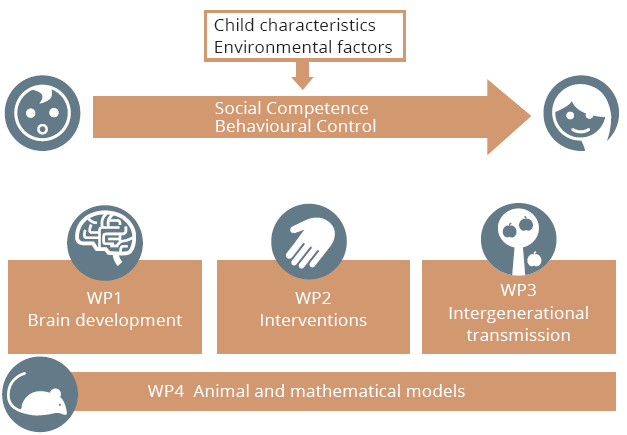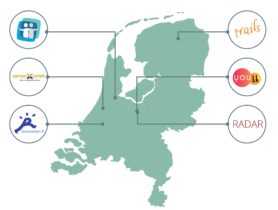General
Most children develop well and find their way in society without major problems, but some do not.
The Consortium on Individual Development (CID) aims to advance our knowledge and understanding of why some children thrive and others don’t. We plan to develop a model of how developmental differences between children arise and fill in crucial gaps in our knowledge.

Design: Taluut Utrecht
CID examines how the environment (family characteristics, parents and siblings, peers, and broader societal influences including media) and child characteristics (genetic makeup, temperament, and pre- and perinatal factors) affect the development of social competence (SC) and behavioural control (BC), skills that are essential for functioning in society and for reducing risk of behavioural and emotional problems.
Social competence and behavioural control are central CID measures and a common thread in our research. Within this joint focus, our four work packages (WPs) work on specific aspects of development: The role of brain development (WP1), Effects of interventions (WP2), The role of generational transmission in families (WP3), Animal and mathematical models of development (WP4).
 Moreover, six large-scale longitudinal human cohorts as well as complementary animal models support the different work packages.
Moreover, six large-scale longitudinal human cohorts as well as complementary animal models support the different work packages.
